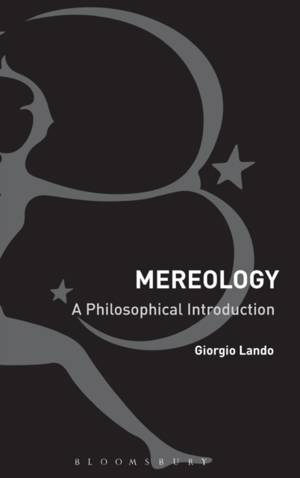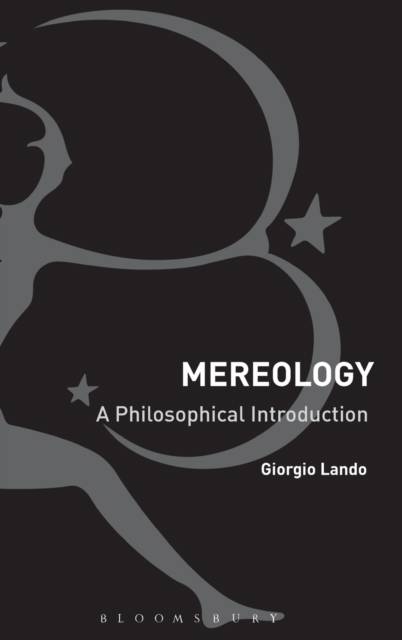
Bedankt voor het vertrouwen het afgelopen jaar! Om jou te bedanken bieden we GRATIS verzending (in België) aan op alles gedurende de hele maand januari.
- Afhalen na 1 uur in een winkel met voorraad
- In januari gratis thuislevering in België
- Ruim aanbod met 7 miljoen producten
Bedankt voor het vertrouwen het afgelopen jaar! Om jou te bedanken bieden we GRATIS verzending (in België) aan op alles gedurende de hele maand januari.
- Afhalen na 1 uur in een winkel met voorraad
- In januari gratis thuislevering in België
- Ruim aanbod met 7 miljoen producten
Zoeken
€ 296,95
+ 593 punten
Uitvoering
Omschrijving
Parthood and composition are everywhere. The leg of a table is part of the table, the word "Christmas" is part of the sentence "I wish you a merry Christmas", the 13th century is part of the Middle Ages. The Netherlands, Belgium, and Luxembourg compose Benelux, the body of a deer is composed of a huge number of cells, the Middle Ages are composed of the Early Middle Ages, High Middle Ages, and Late Middle Ages. Is there really a general theory covering every instance of parthood and composition? Is classical mereology this general theory? Are its seemingly counter-intuitive features serious defects?
Mereology: A Philosophical Introduction addresses the multifaceted and lively philosophical debates surrounding these questions, and defends the idea that classical mereology is indeed the general and exhaustive theory of parthood and composition in the domain of concrete entities.
Several examples of parthood and composition, involving entities of different kinds, are scrutinised in depth. Incidentally, mereology is shown to interact in a surprising way with metaontology. Presenting a well-organized and comprehensive discussion of parthood and related notions, Mereology: A Philosophical Introduction contributes to a better understanding of a subject central to contemporary metaphysics.
Mereology: A Philosophical Introduction addresses the multifaceted and lively philosophical debates surrounding these questions, and defends the idea that classical mereology is indeed the general and exhaustive theory of parthood and composition in the domain of concrete entities.
Several examples of parthood and composition, involving entities of different kinds, are scrutinised in depth. Incidentally, mereology is shown to interact in a surprising way with metaontology. Presenting a well-organized and comprehensive discussion of parthood and related notions, Mereology: A Philosophical Introduction contributes to a better understanding of a subject central to contemporary metaphysics.
Specificaties
Betrokkenen
- Auteur(s):
- Uitgeverij:
Inhoud
- Aantal bladzijden:
- 248
- Taal:
- Engels
Eigenschappen
- Productcode (EAN):
- 9781472583666
- Verschijningsdatum:
- 29/06/2017
- Uitvoering:
- Hardcover
- Formaat:
- Genaaid
- Afmetingen:
- 157 mm x 239 mm
- Gewicht:
- 1238 g

Alleen bij Standaard Boekhandel
+ 593 punten op je klantenkaart van Standaard Boekhandel
Beoordelingen
We publiceren alleen reviews die voldoen aan de voorwaarden voor reviews. Bekijk onze voorwaarden voor reviews.









